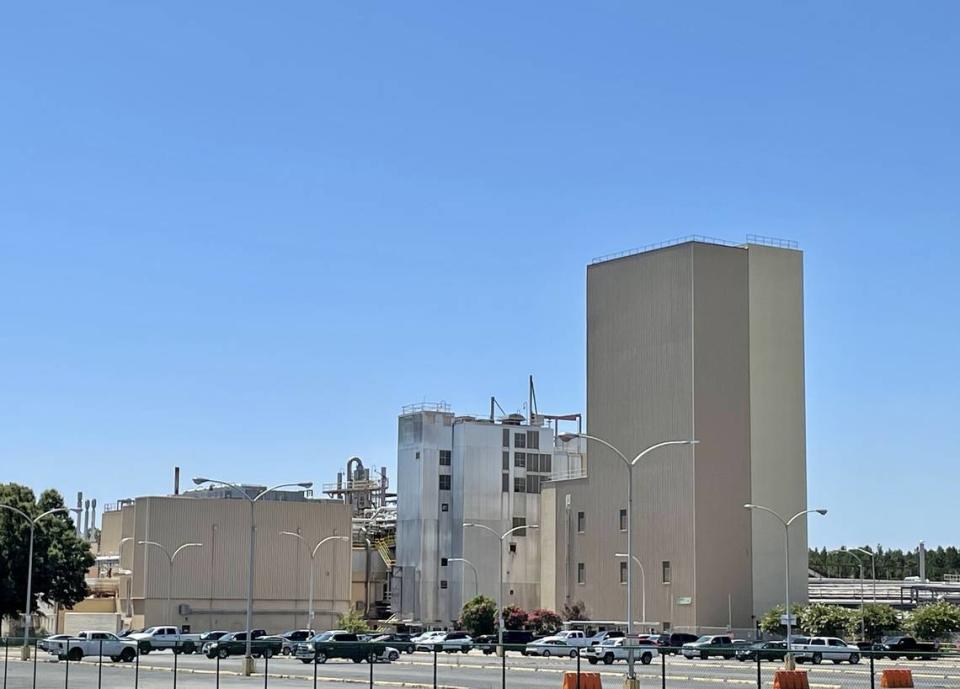Longtime Irmo industrial plant laying off hundreds of workers. Job losses raise concerns.
Shaw Industries, for decades one of the Irmo area’s cornerstone industries, is laying off about 200 of its more than 300 workers this summer as part of a major company realignment for the Georgia-headquartered corporation.
A notice filed last month with the S.C. Department of Employment and Workforce said layoffs will take place by Aug. 7 and involve 203 workers. The layoffs are permanent, the notice says.
Workforce agency officials initially said they understood the entire plant would close, but a Shaw spokeswoman said that is not the case. More than 100 employees will remain at the site on St. Andrews Road after the layoffs have taken effect, Shaw spokeswoman Sara Martin said.
The company is seeking to find jobs for Irmo plant workers at other Shaw facilities, including a major facility in Aiken that is now undergoing a $500 million expansion and modernization project.
Statewide, Shaw employs about 1,200 people at various plants. The company, headquartered in Dalton, Ga., is one of the world’s largest flooring manufacturers and has historically produced materials for carpet fibers.
Its plant in Irmo, known as “8S,’’ has been run by a variety of companies dating to at least the 1960s.
“These decisions are never made lightly,” according to a statement from Heather Canada Smith, vice president of human resources at Shaw. “The associates at Plant 8S have been instrumental in creating exceptional quality products, and we are committed to supporting them during this transition.”
WLTX in Columbia first reported on the layoffs.
Shaw said the employees being laid off at the Lexington County plant work in the company’s residential fiber extrusion processing operation. The company will continue to employ the workers in its nylon resin polymerization and post-industrial reclamation processes in Lexington County, a spokeswoman said.
Those being laid off include technicians and operators involved in the company’s extrusion process, as well as electricians and manufacturing supervisors, according to a June 6 letter to the state workforce department.
The former Allied plant, owned by Shaw since 2005, is easily visible on St. Andrews Road in the Irmo area.
It has been involved in a series of environmental disputes over the years, including the use of a chemical that upset some community members in the 1990s. More recently, the use of forever chemicals, an emerging and dangerous pollutant, has come under scrutiny.
Two environmental groups sued the company this past week, claiming that the chemicals had for years been dumped from the plant into the Saluda River and its flood plain. Among other things, forever chemicals are used to make stain resistant carpets, as well as waterproof clothing and firefighting foam.
The plant, which sits on 470 acres, is still allowing releases of the chemicals, which can cause cancer and other health defects in people who drink water or eat food polluted with the materials, environmentalists say.
Congaree Riverkeeper Bill Stangler, whose group is seeking to stop discharges of forever chemicals, said it’s too early to know how the layoffs might affect the lawsuit’s goal of cleaning up the problem environmentalists say exists at Shaw.
“I was a little surprised by the news; I was not aware of that and did not expect to see that,’’ he said of Shaw’’s intent to lay off workers. “We have been communicating with Shaw to talk about what they are doing. What will be part of that conversation now is what does this shift in their operations mean for long term plans (and) cleanup plans and for what they are going to continue to produce there.’’
Art Guerry, a former Lexington County Councilman, said losing jobs at Shaw is a concern for an area that has already lost substantial businesses.
Shaw was always a good source of employment and a solid member of the community, said Guerry, who formerly ran a real estate office within sight of the Shaw plant.
The St. Andrews-Irmo area “is slowly bleeding,’’ he said. “We’ve lost our banks, we’ve lost insurance companies, we’ve lost retail stores, we’ve lost shopping centers. When I saw that we got 200 plus people vacating that place I was concerned about the tax base we are losing and the blight in the area..’’


